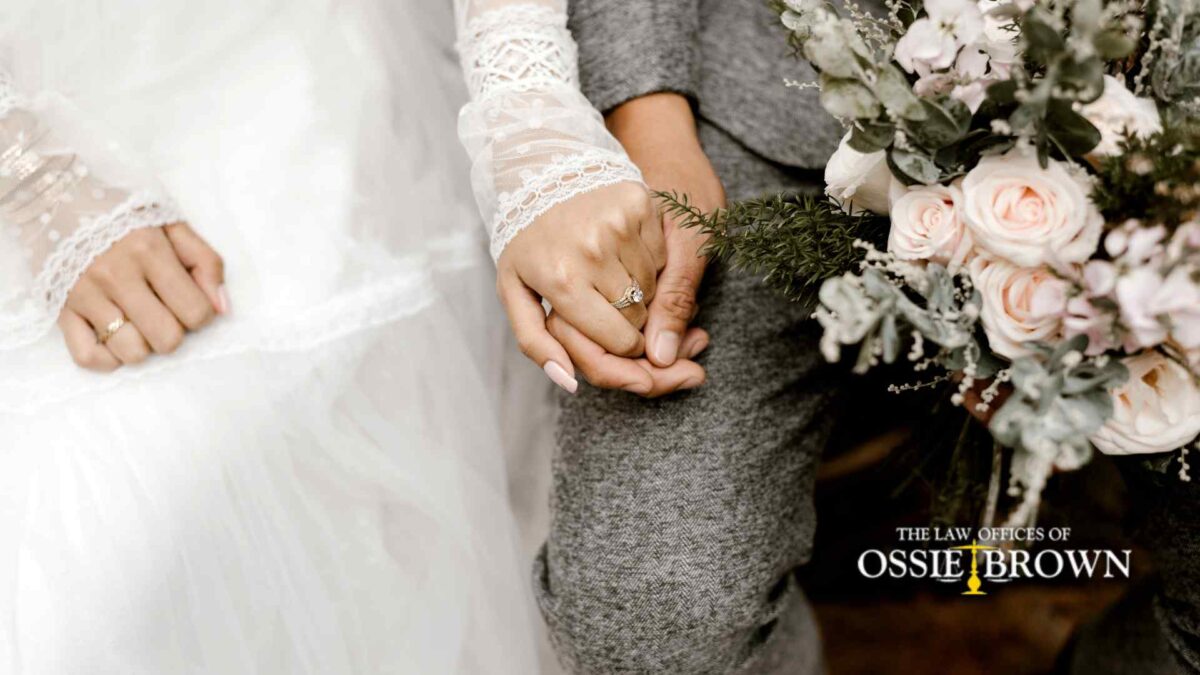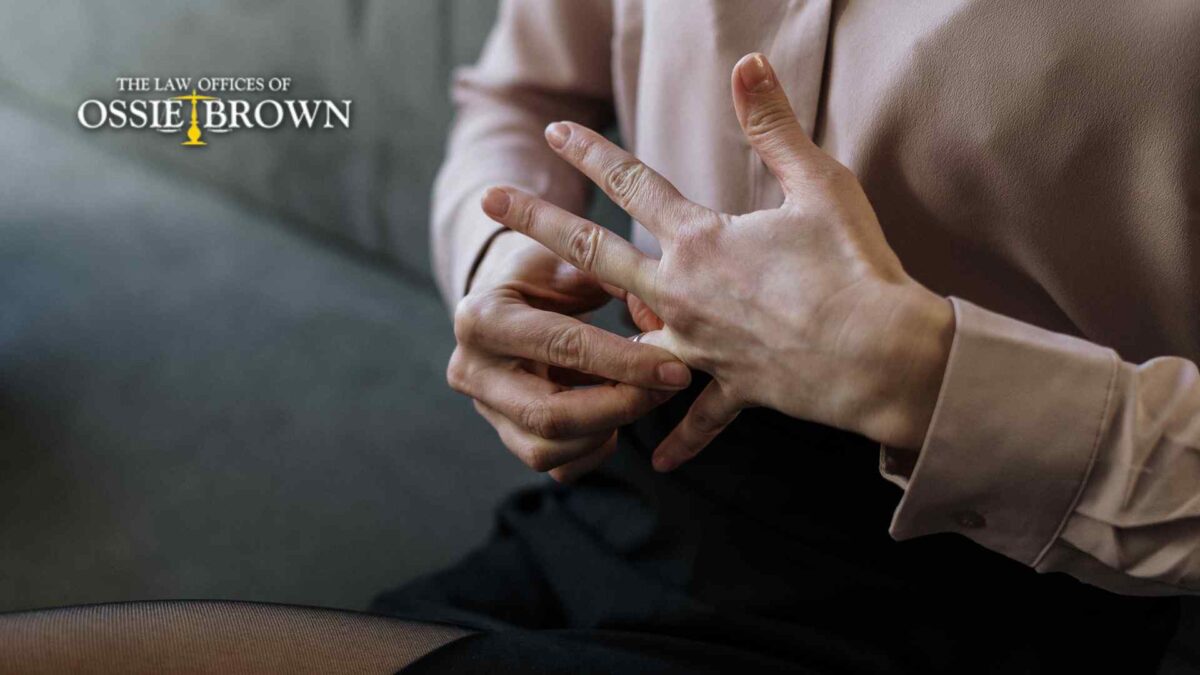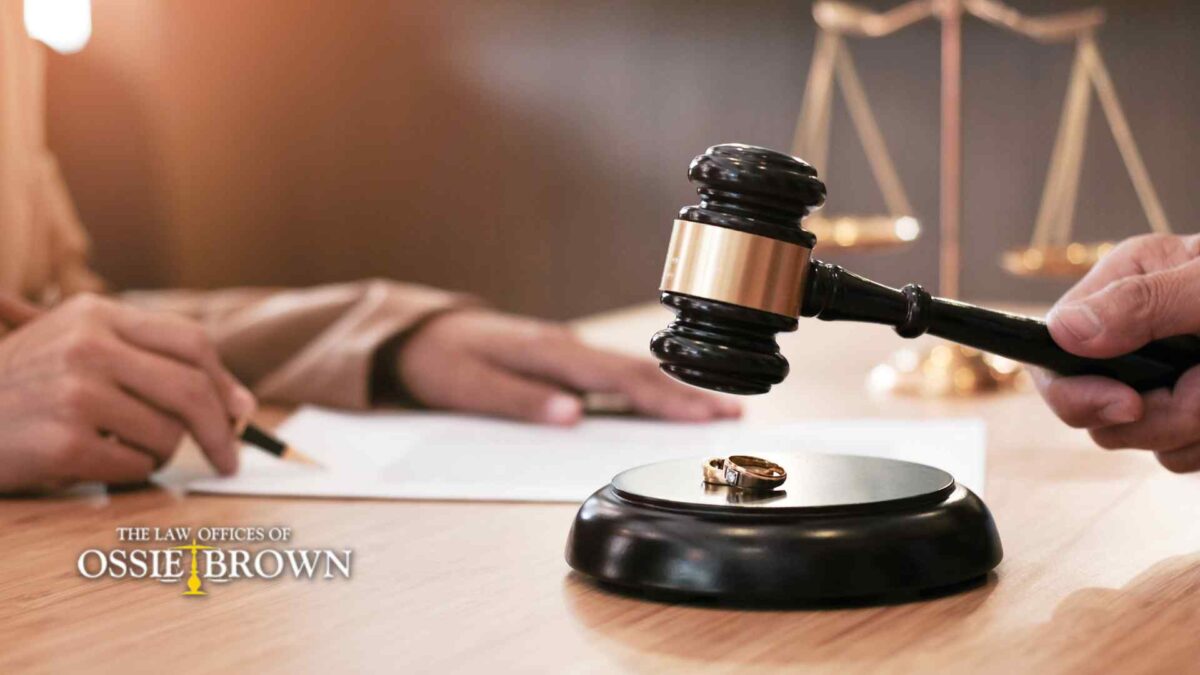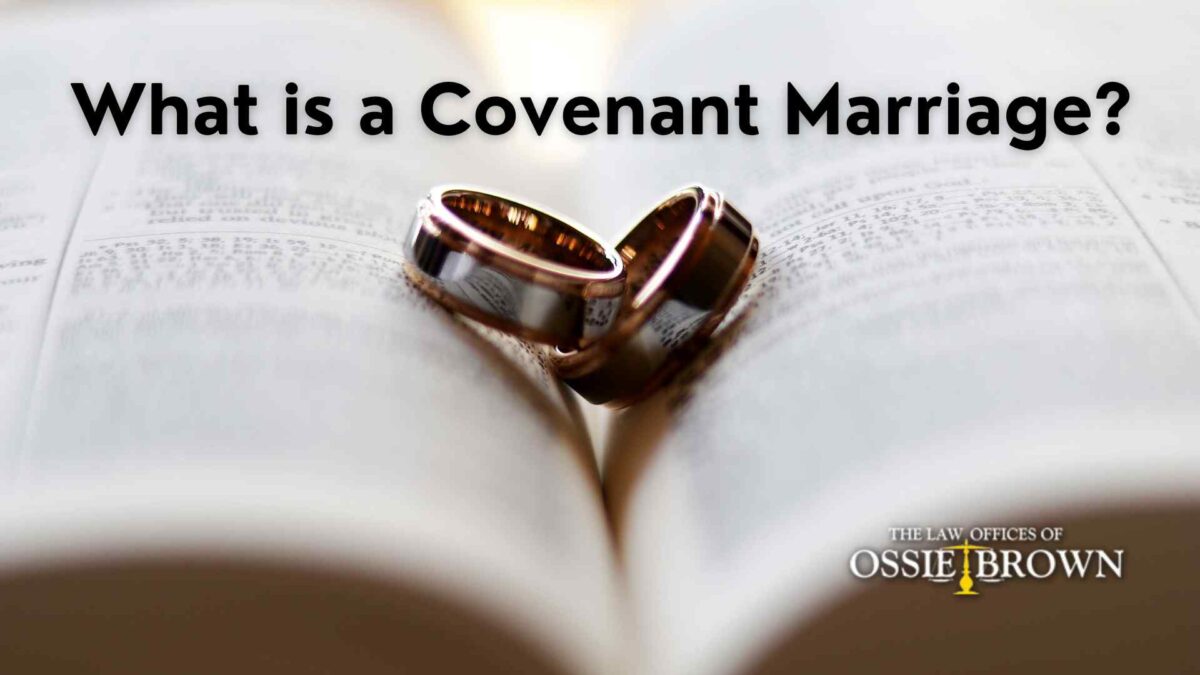Unlike traditional marriages, a covenant marriage is a binding contract demonstrating a couple’s deeper commitment to weathering life’s challenges together. At The Law Offices of Ossie Brown, we understand the significance of this special type of union.
In our latest blog, the Baton Rouge family law attorneys will explain what a covenant marriage is, why some couples choose it, and the legal implications of this commitment. Understanding these aspects is crucial not just for couples considering entering into a covenant marriage but also for those seeking guidance and representation in such matters.
If you need legal advice regarding your covenant marriage, schedule a free consultation with one of our Baton Rouge divorce attorneys at 225-343-1111.
What is a Covenant Marriage?
A covenant marriage is a type of marriage that offers an alternative to the standard marriage practice. It’s designed to provide a structure for couples who wish to show an extra level of commitment to their marriage. Entering into a covenant marriage typically involves several steps and requirements that set it apart from a regular marriage, like premarital counseling and the declaration of intent.
The idea behind a covenant marriage is to reinforce the stability of the marital union and to promote careful consideration before entering into marriage and seeking to end it. It reflects a desire by some couples for additional legal and moral structures to help support and sustain their relationship. This form of marriage is particularly appealing to those with strong religious beliefs or those who believe in the importance of additional barriers to divorce as a means of enhancing the seriousness and stability of the marital bond.
Which States Allow Covenant Marriages?
Currently, there are only three states that recognize covenant marriage law: Arizona, Arkansas, and Louisiana. The first state to adopt covenant marriage law was Louisiana in 1997, with Arizona and Arkansas following soon after.
Louisiana legislators created the Covenant Marriage Act as a way to encourage couples to participate in professional or religious marital counseling before seeking a divorce. When couples choose a covenant marriage, they declare their marriage a lifelong commitment.

Louisiana’s introduction of the Covenant Marriage Act marked a significant shift in how marriage could be legally defined and practiced within the state. This act was designed not only as a legal framework but also as a tool to encourage deeper thought and commitment among couples considering marriage. A critical part of this act is the requirement for professional or religious marital counseling before entering into a covenant marriage and before pursuing a divorce. This counseling requirement is intended to ensure that couples fully understand the gravity of their commitment and have the skills and knowledge necessary to build a lasting, stable relationship.
Marriage License Application and Declaration of Intent in Covenant Marriages
In covenant marriages, the process of applying for a marriage license is more involved than in a standard marriage. When two people apply for a couple’s marriage license for a covenant marriage, it initially resembles the same process as an application for a marriage certificate for a traditional marriage. The marriage certificate must be applied for at the local parish clerk’s office or other designated official that issues marriage licenses.
The next portion of the marriage license application process differs from the traditional one. When applying for a covenant marriage certificate or license, couples must provide the usual proof of identity and age but also documentation that proves they have received premarital counseling.
To obtain pre-marital counseling required for a marital covenant commitment, marriage counseling must be conducted by a clergy member of a religious sect, licensed therapist, or professional marriage counselor. It must cover specific topics, including the nature of commitment in a covenant marriage and the conditions for legal separation or divorce.
As part of the covenant marriage application process, couples must also sign a Declaration of Intent. The declaration of intent includes:
- The declaration that the couple is entering into a covenant marriage.
- An acknowledgment of premarital counseling completion.
- An agreement that if the parties experience marital difficulties, they will seek marital counseling and make reasonable efforts to preserve their covenant marriage.
It’s essential for couples considering a covenant marriage to familiarize themselves with laws outlined by the Louisiana legislature. Before applying for the marriage license, it’s recommended to consult with attorneys familiar with covenant marriage law, like the Baton Rouge family law attorneys at The Law Offices of Ossie Brown.
Affidavit and Attestation in Covenant Marriages
The affidavit and the attestation are critical in a covenant marriage as they provide legal and formal acknowledgment of the couple’s understanding and acceptance of their covenant marriage. These documents ensure that the decision to enter into a covenant marriage is made thoughtfully and both parties are fully aware of its implications.
In a covenant marriage, the affidavit is confirmed by oath or affirmation, usually before a notary or another authorized official. This document typically declares that the couple was able to obtain premarital counseling. It also includes details such as that they were informed about the nature and legal implications of a covenant marriage and that they understand the commitment they are making, particularly the commitment to obtain counseling and seek all reasonable efforts to preserve the marriage in times of marital difficulties.
The attestation is the act of certifying or witnessing the declaration, often performed by the individual who provided the premarital counseling, stating that the couple has indeed received counseling. The professional counselor or clergy attests that they have discussed the serious nature, legal implications, and special commitments involved in a covenant marriage with the marrying spouses. This attestation is often a separate document from the affidavit provided by the couple and may need to be attached to the marriage license application.
Can You Legally Separate in a Covenant Marriage?

Couples in a covenant marriage can legally separate, but the process and requirements are more stringent than those in a standard marriage. Because a covenant marriage is intended to encourage couples to work through marital difficulties rather than quickly resorting to separation or divorce, the grounds for legal separation are more specific and limited. Legal separation is not the same as a divorce and does not end the marriage.
Before a couple can legally separate, they must prove that they have received marital counseling and that one of the following has occurred:
- The other spouse committed adultery;
- One spouse has committed a felony and been sentenced to hard labor or death;
- The other spouse has abandoned the filing spouse for at least one year;
- The other spouse has committed physical or sexual abuse of the filing spouse or child of either spouse;
- The couple has lived separate and apart for two years or
- Habitual intemperance (i.e. drug or alcohol abuse, cruel treatment, or severe ill-treatment) by the other spouse.
The time required for spouses to live apart will vary depending on several circumstances. If there is a minor child or children, the couple must live apart for one year and six months. If the spouse committed physical or sexual abuse against the child of either spouse, they must be separated for one year. Under any other circumstances, the couple must live separately for one year.
Can You Get a Divorce in a Covenant Marriage?
Couples in a covenant marriage can get divorced, but it is more challenging compared to a standard marriage. The idea behind a covenant marriage is to strengthen the marital bond and make couples think more seriously about resolving marital issues. Due to the serious nature surrounding a covenant marriage, several requirements must be met before the marriage can be dissolved.
Grounds For Divorce
Unlike traditional marriages, couples may file for divorce only for certain situations and only after they have seen a professional marriage counselor.
Seeing a Professional Marriage Counselor

In a covenant marriage, couples are required to attend marriage counseling before getting married and during the marriage to address any issues or conflicts. If both spouses mutually agree to seek professional counseling and subsequently decide that the marriage is irreparable, they can pursue divorce through this avenue. A qualified marriage counselor can provide guidance on the best course of action and help mediate the process.
Adultery
Adultery is considered a valid ground for divorce in a covenant marriage. If one spouse can prove that the other engaged in an extramarital affair, it can be grounds for ending the marriage. However, it’s important to note that proving adultery can be challenging, and evidence may be required to support the claim.
Felony Conviction and Imprisonment
If one spouse is convicted of a felony and sentenced to imprisonment for an extended period, the other spouse may seek a divorce. The conviction and imprisonment must be for a specific duration, and this ground for divorce reflects the serious nature of such offenses.
1 Year of Abandonment
If one spouse abandons the other for a continuous period of one year or more without any reasonable cause or intention of returning, the abandoned spouse may file for divorce. Abandonment can be physical or emotional, and the one-year requirement demonstrates the commitment to reconciliation.
Separation Without Reconciliation
If the spouses have been living apart for a continuous period of two years or more without reconciliation, they can pursue divorce. This extended separation period signifies a significant effort to resolve differences and make the marriage work.
Physical or Sexual Abuse
In cases of physical or sexual abuse, the victimized spouse can seek a divorce. The abusive behavior is considered a breach of the marital covenant, and the victim should document evidence and seek legal protection before initiating divorce proceedings.
Habitual Alcohol or Drug Abuse
When one spouse’s habitual alcohol or drug abuse threatens the well-being of the family and the marriage, the other spouse may initiate divorce proceedings. It is important to provide evidence of habitual abuse to support this ground for divorce.
Can You Designate a Regular Marriage as a Covenant Marriage in Louisiana?

Couples in Louisiana who are presently married can designate their marriage as a covenant marriage. The married couple must first participate in marriage counseling before completing the Declaration of Intent, affidavit, and attestation. These documents are then filed with the official records office of the parish where the couple originally got married or, if out of state, in the parish of their current residence.
Many couples decide to transition their current marriage to a covenant marriage as a reaffirmation of commitment and willingness to work through marital challenges together.
Call a Baton Rouge Divorce Lawyer at the Law Offices of Ossie Brown Today
If you’re applying for a covenant marriage or considering your options regarding divorce, reaching out to a skilled Baton Rouge divorce lawyer is crucial. At The Law Offices of Ossie Brown, our team of experienced attorneys is well-equipped to provide you with guidance, support, and legal expertise.
We understand the nuances of Louisiana’s family law, especially regarding covenant marriages, and are committed to helping you make informed decisions. Our firm also has Baton Rouge custody lawyers on staff. Call The Law Offices of Ossie Brown at 225-343-1111 to discuss your situation and explore your legal options.

